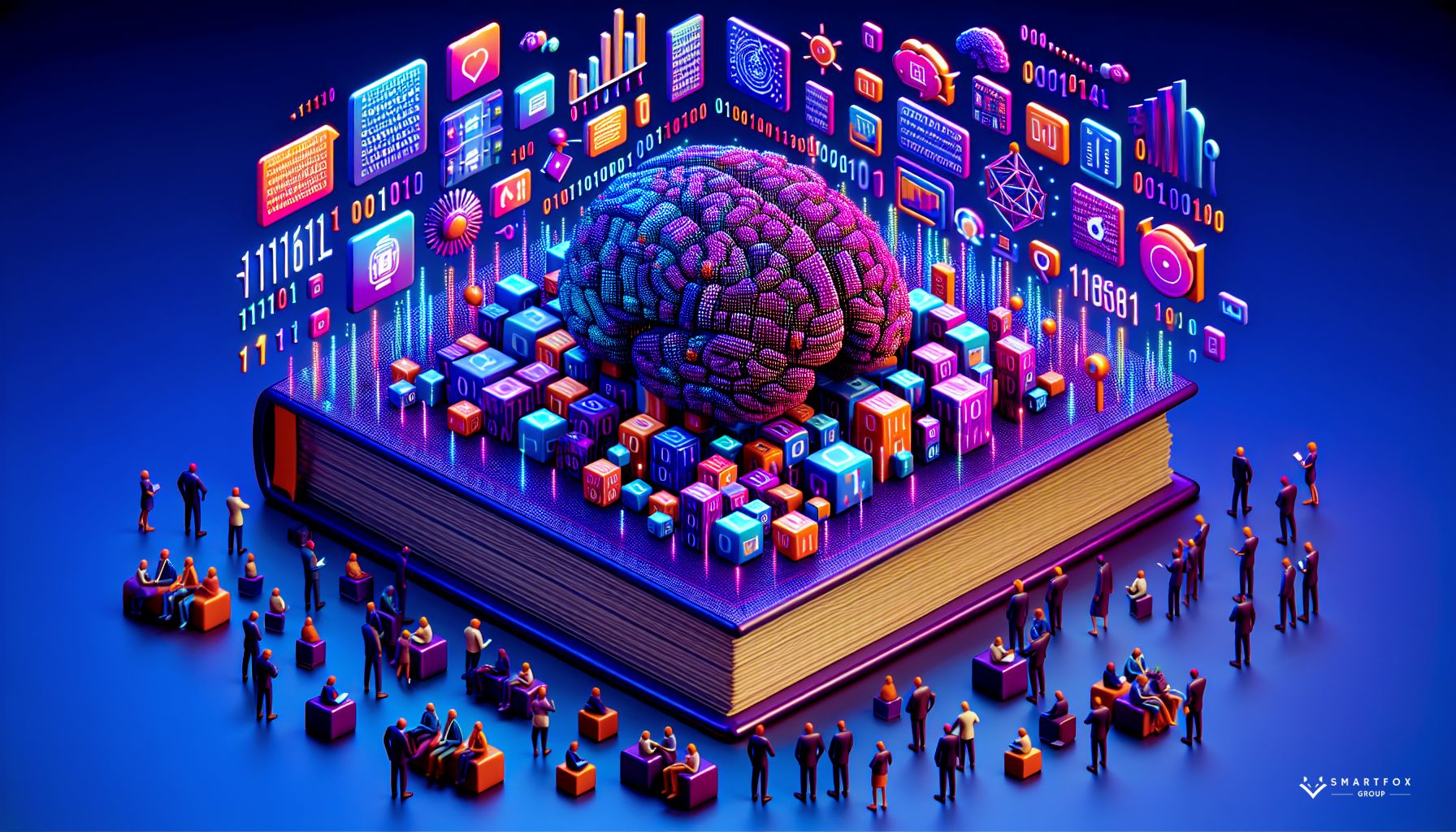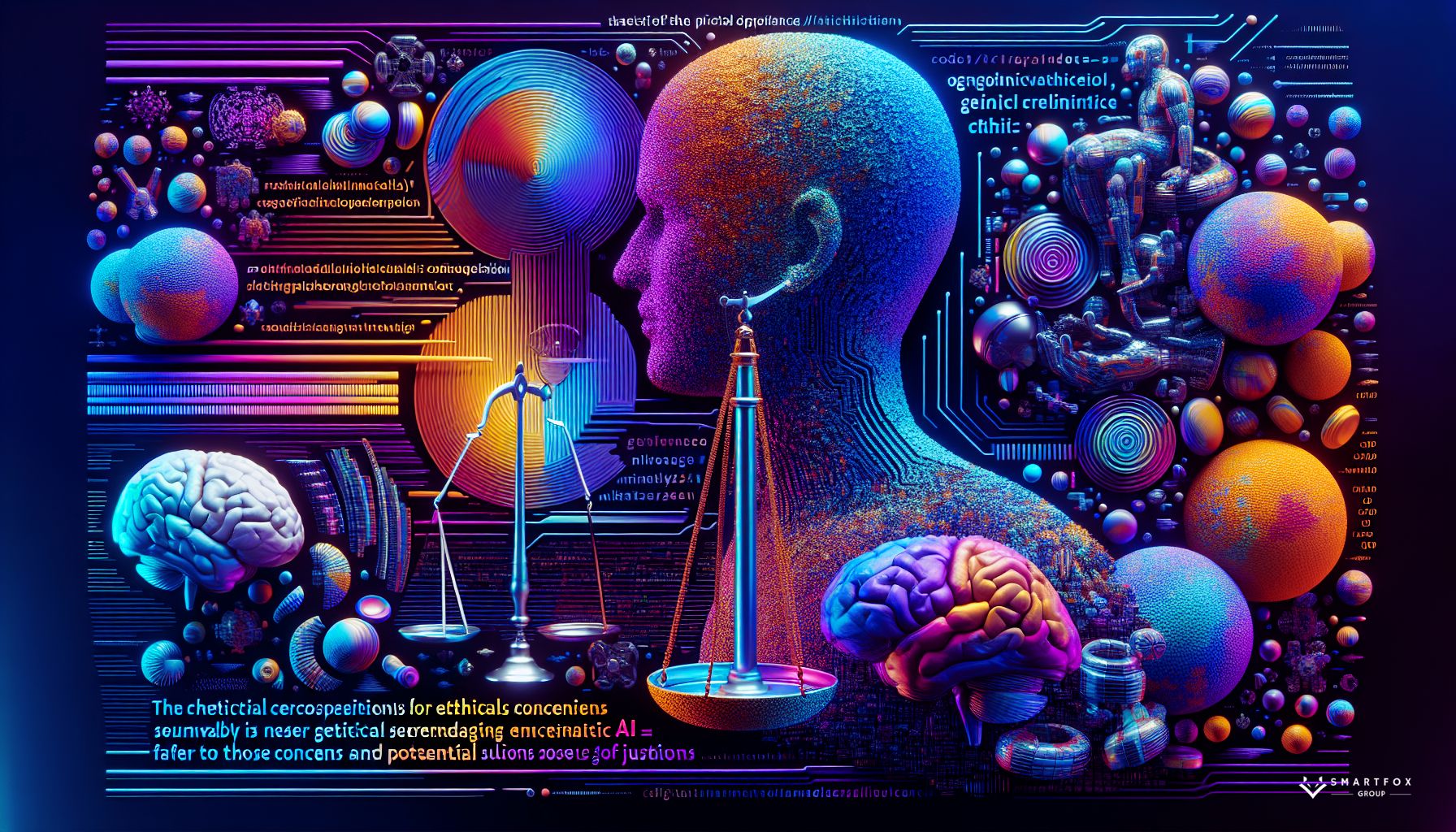Welcome to the grand arena of the business world, where the tightrope walkers are not humans but bits and bytes, performing a balancing act known as ethical generative artificial intelligence. The spotlight is bright, the audience is vast, and the act? It's nothing short of transformative. Yet, as awe-inspiring as this technological circus is, it's not without its high-wire risks. So, buckle up, or rather, log in, as we embark on a journey through the electrifying, yet perilous domain of generative AI in business, ensuring we don't lose our ethical compass along the way.
The tendrils of generative AI are inching their way across boardrooms and databases, weaving a pattern of innovation and creativity. At its core, it is an act of balance: businesses must navigate the fine line between the cutting-edge capabilities of AI and the foundational principles of ethical responsibility. Just like the trapeze artists high above the circus floor, there's little room for error. One misstep could mean a fall from the ethical heights, and it's a spectacle no company wants to perform.
The Rush to Adopt: A Spectacle with Ethical Twists
In the corporate juggernaut, the rush to adopt generative AI is akin to spectators clamoring for front-row seats at the greatest show on digital earth. A throng of sectors is eager to harness this wizardry to jazz up efficiency and sprinkle some innovative magic across processes. Recent scrolls of wisdom—also known as industry studies—reveal IT leaders with eyes gleaming with anticipation, placing their bets on this technological marvel.
But innovation's tightrope is fraught with winds of ethical quandaries that can sway even the most steadfast of technologies. As the drumroll of progress sounds, business leaders need to fine-tune their ethical instruments. They must ask the tough questions: Whose data is being used, and how? Are the resulting AI-generated decisions free from biases? Are we, inadvertently, putting on a high-stakes performance that sacrifices individual privacy on the altar of efficiency? Moreover, a cacophony of voices demands to be heard in this ethical discussion—from regulators and legislators to activists and the very individuals whose data powers the show.
Crafting the Rulebook: Ethical Guidelines for the AI Extravaganza
When it comes to the bespoke suit of generative AI in the enterprise wardrobe, one size does not fit all. This is where Salesforce steps in, like a sage conjurer, offering the Trusted AI playbook. This isn't your run-of-the-mill guide but a veritable Gandalf of ethical AI principles advocating for transparency, fairness, accountability, and reliability.
This rulebook is indispensable, reminding us that every use case of AI within our business walls should don the garb of ethical conduct. From the engineers designing the AI models to the end-users interacting with its outputs, all participants in the generative AI process must understand their roles within the ethical narrative. The guidelines serve as the moral fabric that binds an organization’s pursuit of progress to its commitment to doing the right thing—keeping the performance well within the bounds of the ethically acceptable while still wowing the crowd with feats of innovation.
The Five Commandments: Ethical AI's Pillars of Wisdom
Enter Salesforce, once more, with its beacon of guidelines shining light on the sacred five pillars essential for an ethical generative AI crusade:
- Accuracy: This pillar demands that AI systems strive for the utmost precision. It's not just a preference, but an imperative. An AI model's assertions should be like the steel cables supporting the tightrope—unquestionably robust and reliable. Inaccuracy in AI predictions is like a faulty trapdoor on stage: it may give way when least expected, spiraling into consequences that could be disastrous for both reputation and real-world implications.
- Safety: Here, we put on the suit of ethical armor to guard against the digital dragons of bias and harmful content that lurk in the shadows. The AI must become a digital paladin, sworn to protect privacy and uphold the sanctity of data. The realm of information is precious, and making AI the guardian of this domain is no small feat. It's about making sure the audience, your users, trust that the performance won't veer into the dark.
- Honesty: In a world full of smoke and mirrors, your AI must stand out for its candor. This means being transparent about where the AI gets its insights and maintaining integrity in its operations. Hand in hand, data policies and AI honesty must conjure a trust spell powerful enough to bind the audience to the act.
- Empowerment: This commandment is about bestowing the AI with the role of a supportive sidekick, not the domineering diva. AI should illuminate the human intellect, not dim or replace it entirely. It’s about synergizing human intellect with machine intelligence to create a double-act that can only be described as truly remarkable.
- Sustainability: Lastly, but certainly not least, is the call for AI to tread lightly on our planet. This involves conjuring AI models that are as efficient as they are effective, ensuring that the digital footprint of tomorrow's AI-driven enterprises does not become a stampede over the environment's well-being today. It’s a commitment to eco-responsibility in the server room, just as much as in the showroom.
The Grand Integration: AI Joins the Business Circus
For generative AI to swing gracefully into the business big top, organizations must become ringmasters of zero-party or first-party data to maintain a spectacle of accuracy, originality, and trust. Keeping data fresh and well-coiffed is key to steering clear of the dreaded inaccuracies and biases.
This integration is a multifaceted act requiring a symphony of processes and policies to keep the performance running smoothly. Generative AI should not only complement existing data processes but enhance them with a flair that captures the audience's, or in business terms, the market's attention. This means data grooming is as crucial as the coding sorcery that animates the AI entities themselves. Imagine AI as a mirror that not only reflects reality but augments it, projecting a vision of the business that is both captivating and ethically sound.
At its pinnacle, generative AI in the business circus must serve as a testament to human ingenuity, a partnership that mirrors the best aspects of both its creators and their aspirations. It should pirouette alongside human judgment, reinforcing rather than stealing the spotlight. And let’s not forget, the show must go on—with continuous testing and audience feedback to refine the performance.
Businesses that take the time to teach their generative AI acts to dance with ethical grace are the ones that will ultimately reap standing ovations. After all, both in the circus and in the boardroom, it's the dazzling combination of skill, precision, and trust that wins the crowd. The journey toward integrating generative AI is just beginning, and already it's proving to be a spectacle of historic proportions. It's an act that demands both caution and courage, where every step on the tightrope could spell triumph or tragedy.
Generative AI, with all its dazzle and potential, stands at the ready to revolutionize business processes and customer experiences. However, without a firm grip on ethical practices, this show-stopper could quickly become a tightrope disaster. By establishing robust guidelines and ethical frameworks, businesses can soar on the high-wire of innovation with confidence. Adhering to these principles ensures that companies can embrace the marvels of generative AI, safeguarded against the pitfalls, ready to take a bow under the grand tent of progress.













0 Comments